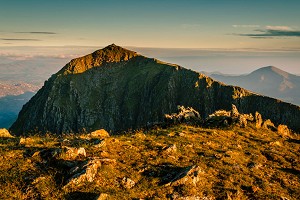
It's tough at the top (of Britain). When the Anglophone hill-goer first sticks a Vibrammed toe across the Highland Boundary Fault, they have a lot to absorb. The scale of the hills. The intergalactic distances between them. The roughness. The steepness. The wetness. The cold. The lack of anything you could credibly call a path. Raging rivers wide as an eight-lane motorway, and just as lethal to cross. The staggering hours of daylight in summer and darkness in winter. Being bitten, clung to and burrowed into on your every intimate square centimetre by midge, ked and tick.
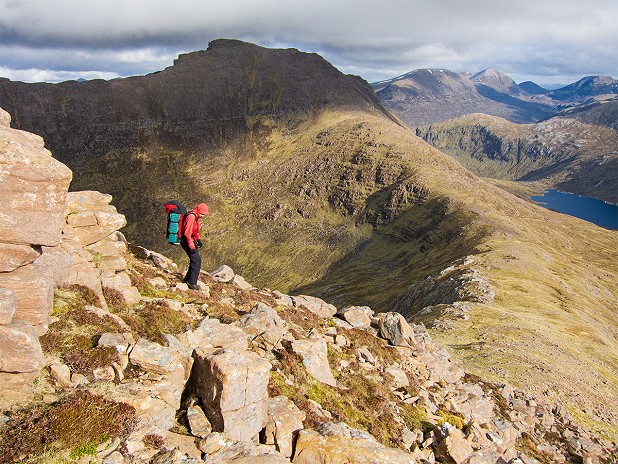
One of the other challenges (but I'm here to convince you it's one of the great compensatory joys) awaiting such a journey is the discovery of a whole other language to describe the landscape. If you're used to cosily familiar names like Scar Crags, Low Pike or Swirl How, you can be forgiven for not immediately getting your tongue around Beinn a' Chlaidheimh, Bràigh Coire Chruinn-bhalgain or Sgùrr Cos na Breachd-laoidh. But you should try.
Don't be the person that loudly proclaims to the whole saloon bar: "Yeah, we ticked off Ben Unpronounceable today, hur, hur."
Not just a landscape but a culture
Just as you don't want to be one of those holidaymakers torturing Spanish, you definitely don't want to disrespect the local language of the Highlands by referring to a bealach as a "bee-lack." No, this is not just a landscape you're moving through, but a culture, so it helps to learn to love the swooping lilt of all three syllables "bay-al-uch". With the emphasis on the middle syllable, and applying a modicum of imagination, you can feel the roller-coaster rise and fall of an actual pass when you say it. By contrast, the word "pass" seems dull and inadequate.
Poetic and Prosaic
The objection is sometimes made that Highland hill names tend towards the prosaic. For example, Beinn Liath Mhor, ("Lee-yurr Vore") just means Big Grey Hill. But that just reflects the reality that the Gàidhlig settlers had more pressing concerns getting a harvest from this landscape than bagging Munros, so place names were often a purely practical matter. Just as, in the Lake District, we find many White Sides, High Pikes and Raven Crags.
By contrast, some of the names do appeal to a modern romantic sentiment. Beinn Alligin, hill of the jewel or hill of beauty, lifts the spirits with a sense of poetry. Schiehallion is generally translated as Fairy Hill of the Caledonians, which sounds surprisingly whimsical. It's fair to assume, though, that these fairies have a rather darker history than the diaphanous-winged nymphs of English lore.
Incidentally, I'm aware of the dangers of an Englishman romanticising and exoticising the Gàidhlig. My relationship with the tongue began as a lovestruck swain from the English flatlands, marvelling at its otherness. It seemed to me at seventeen that the Gàidhlig bore no relation to any other European language and was as inexplicably isolated as Euskadi in the Basque country or Georgian in the Caucasus. I remember being particularly tickled, possibly childishly so, by Stùc a' Choire Duibh Bhig, the easternmost peak of Liathach, where the pronunciation of "Bhig" is approximated by "veek" and means small. Little things please little minds.
Language as Autostereogram
But some things take time. Perhaps you're old enough to remember those Magic Eye images from the nineties: the ones that required you to stare into their murky depths for ages before the leaping dolphin took form? The Gàidhlig has plenty of European links running through it if you look closely.
Take one hill. Buachaille Etive Mòr is an unmissable landmark on the pilgrimage north. Excitement builds on the long zigzag onto Rannoch Moor from Tyndrum and suddenly it appears: a colossal ziggurat of rock and heather. It is, rightly, one of the first hills the non-Gaelic-speaking visitor learns to recognise by outline, and the pronunciation of the first word can be reasonably approximated with the word, "buckle". It is usually translated as "Herdsman," and it's strangely comforting to a weary traveller on the A82 to imagine the hill casting a protective eye over the wild portal to Glen Coe/Gleann Comhann.
Suddenly, Homer, Virgil, Chaucer and Ossian seem not natives of parallel universes but linguistic brothers
Now whisk your mind away from the desolation of Rannoch to somewhere diametrically opposed. Consider an archetypically pastoral English scene: a Constable painting, perhaps, with villages and farms scattered across a richly swelling agricultural landscape. What adjective would you reach for? Bucolic came into English from the ancient Greek, boukolos or "herdsman". Does that sound eerily familiar? The first syllable derives from bous meaning ox. The Latin for cow, Bovis, is strikingly similar and gives us the English "bovine". "Beef" is not many miles away phonetically. In the Gàidhlig, a singular cow is bó whereas a herd is ba. Hence Bealach na Ba is the pass of the cattle. Suddenly, Homer, Virgil, Chaucer and Ossian seem not natives of parallel universes but linguistic brothers.
A glimpse of the Auld Alliance
Now consider the burn tumbling out of the wild Northern corries of Ben Nevis/Beinn Nibheis: the Allt a' Mhuilinn. A simple enough name; Allt means stream and you probably already know that Mhuilinn is pronounced vullin and means "mill". As you stumble up to the CIC hut through the dark, laden with ice gear, you might be forgiven for thinking you're as culturally far as it's possible to get from the dancing girls of Paris. But the Moulin Rouge is clearly cut from the same linguistic cloth. When we mill flour, we make meal and when you mull this over, you are figuratively grinding it in your mind.
And what about that word Gleann? There are Glens all over Scotland and Northern Ireland. In the Lake District, there is a surprising cluster of them around the top end of Ullswater: Glenridding, Glencoyne and Caiston Glen. What's going on? Has part of Cumbria seceded to Scotland? The answer lies not north of Hadrian's Wall but west of Offa's Dyke. In Welsh, Glyn is a valley, so the crop of Glens in Lakeland is a relic of a pre-Anglo-Saxon Brythonic past. We may not be able to involve the French, Greek or Roman worlds here, but we can establish a kinship between all four Home Nations in one word.
Getting carried away by a Maiden
Can we overdo it? Can we stare into the Magic Eye picture for so long that the dolphin that appears is purely imaginary? Possibly. Let's take another hill: A' Mhaighdean. Geographically, the contrast with Buachaille Etive Mòr is total: A' Mhaighdean is a strong candidate for the most remote Munro, using the conventional definition of distance from public roads. It takes a substantial undertaking just to reach its lower slopes, and it may even take effort just to see it, so it has mystique in corriefuls. This mystique, of course, extends to the name, translated as "The Maiden" and pronounced approximately, "A-vie-chun". The middle syllable carries the stress and rhymes with pie.
Now, squint: is it even conceivable that a common heritage between the vastly different English words maiden and virgin can be glimpsed in the name of a fabulously elusive Scottish hill? The question is rhetorical: it's far more likely the resemblance is coincidental. And yet I like the question because it encourages a kind of watchfulness. As we roam the Highlands, respecting the wildlife, camping responsibly and leaving no trace, it's also worth being mindful of the linguistic heritage beneath our boots. Often it feels too distant, too scattered, too broken by time and injustice; we stumble through the heather and find only "a rickle of stones and a name on the map" as the poet MacCaig had it, staring at history "down the wrong end of the telescope". But it's still important to keep straining your eyes through the mist.
What you can do
Try. Just as it's important to have a crack at Greek in the taverna, it's good to have an honest attempt at the Gàidhlig. Don't be the person that loudly proclaims to the whole saloon bar: "Yeah, we ticked off Ben Unpronounceable today, hur, hur." Just don't.
Read up. There are lots of resources available online and in print. Nobody's expecting you to have a detailed Gàidhlig dialogue about local politics with the checkout staff in Ullapool's Tesco. The reality of hill place names is that you can get far with a very limited vocabulary of colours, creatures and geographical features. Kevin Woods' article in these pages has an excellent glossary.
Listen. Obviously we don't want you to stray from ukhillwalking but the walkhighlands website is one excellent resource for sound recordings of the names of the Munros and Corbetts.
Question. Use anything that appears odd as a chance to interrogate the many anomalies of English. For example, you may find it strange that the insertion of an h after an m or b can change them to a v sound. But we've happily changed a p to an f sound for years in words like phone.
- Double Trouble on the Scafells - A Tale of Profit and Loss 14 Jul
- The 10 Greatest Lake District Fells...? 13 May
- My Favourite Map: For Life, Not Just For Christmas 22 Apr
- Ultralight Night on Gable 7 Apr
- Heavens Above and the Hounds of Hell 21 Feb
- Exiles - The Perspective of Distance 18 Dec, 2023
- OPINION: How Much is Just Enough? In Defence of the Ultralight Philosophy 2 Oct, 2023
- OPINION: Bagging - Going Beyond the Cult of the Summit 10 Jul, 2023
- Simmer Dim on Scafell 19 Jun, 2023
- ARTICLE: Snatching Winter from the Jaws of Spring 25 Mar, 2023



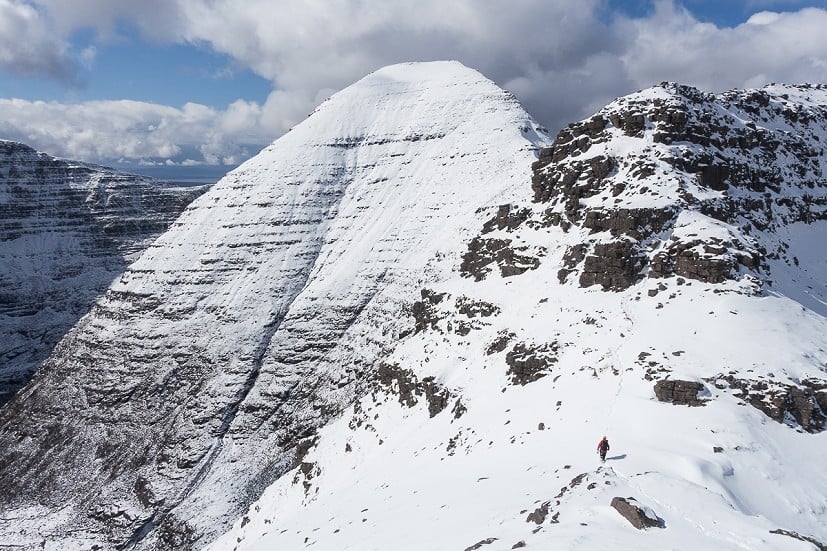
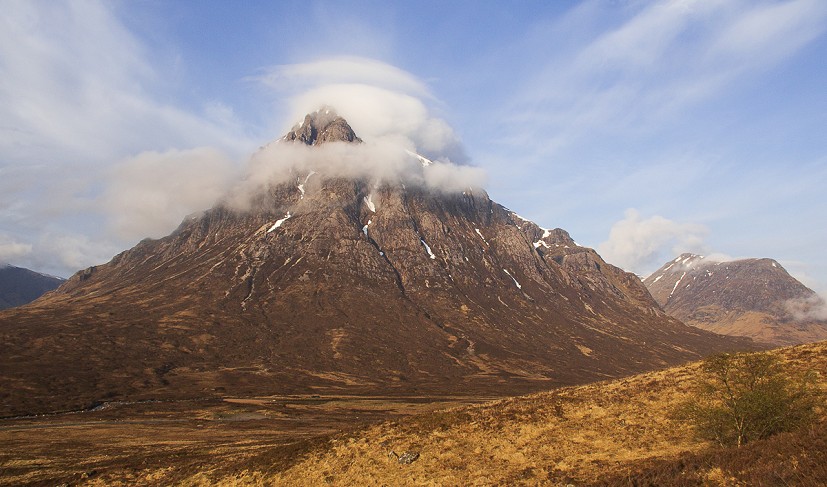
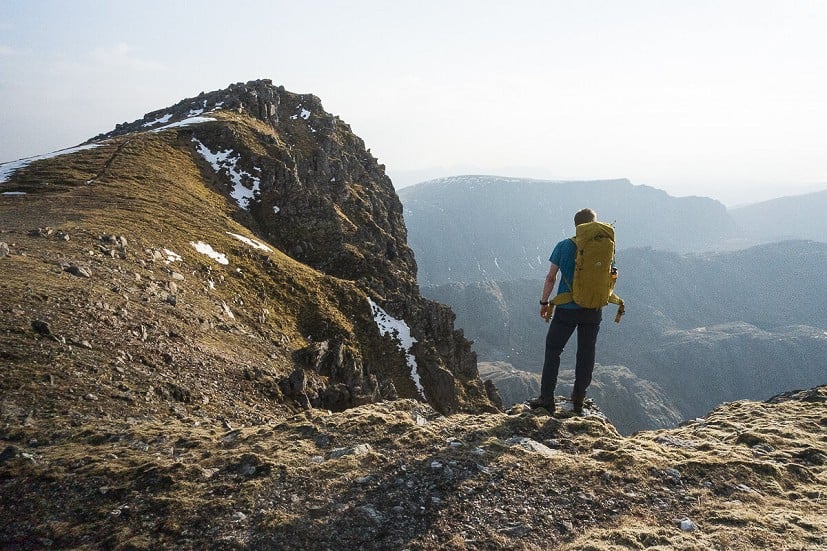


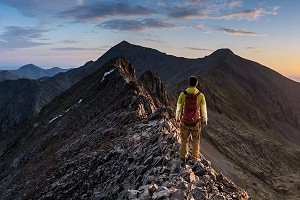

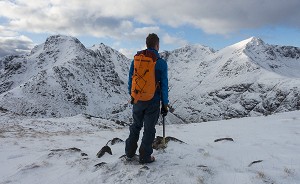
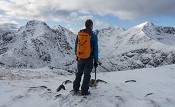
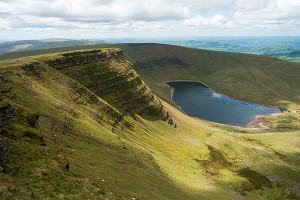
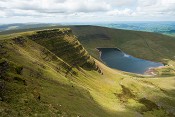
Comments
The Scots do have a way with place names. Just recently I camped on Buttock Point, the northernmost bit of Bute. Then there's the Cock of Arran. As for Tw@tt, well best not go there ...
Don't forget the Butt of Lewis. All people named Lewis should make a pilgrimage.
See (well, hear) also...
https://soundcloud.com/norman-hadley/hymn-to-the-gaelic?utm_source=clipboard&utm_medium=text&utm_campaign=social_sharing
Well as someone who grew up in Ayrshire I have always found the obsession and creeping credence given to Gaelic annoying. My home town now has a ludicrous Gaelic name with no relation to the name it’s had since the dark ages. It was never my language nor the language of my ancestors. Etymologically interesting yes, but many of the names are not that old (Sgurr nan Spainteach certainly not much over 300 years). It’s not a phonetic language so well done if you can pronounce it but it means you will not be able to communicate it because no one else knows what you are saying (well 2-3% of the population). To cut to the chase, Gaelic is too bound up in Nationalism. Be interested in the language but if you want to call it The Bookil or Cheesecake then fine by me.
Are you talking about English here? ;-)
I've been learning Gaelic for the past 6 months, and from what I've learning so far pronounciation is pretty consistent, even if it is taking a while for me to tune my ear to it (and longer to tune my tongue).